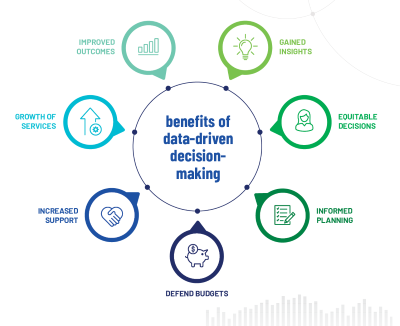Data-Driven Decision-Making: Powering Informed Business Strategies


Unleashing the Power of Data-Driven Decision-Making
In the modern business landscape, data-driven decision-making has emerged as a cornerstone for organizations seeking to gain a competitive edge. This strategic approach harnesses the vast amounts of data available to inform and guide key business decisions.
The Foundation of Informed Strategies
Data-driven decision-making relies on the premise that data, when properly analyzed, can provide valuable insights that guide informed strategies. Businesses can leverage data to understand market trends, customer behaviors, and internal processes, laying the foundation for effective decision-making.
Utilizing Big Data for Comprehensive Insights
The era of big data has ushered in a wealth of opportunities for organizations to gather comprehensive insights. By aggregating and analyzing large datasets, businesses can gain a holistic view of their operations, customer preferences, and industry trends. This depth of information is invaluable for crafting well-informed strategies.
Enhancing Operational Efficiency
Data-driven decision-making is not solely about strategic planning; it also plays a crucial role in enhancing operational efficiency. By analyzing internal processes and performance metrics, organizations can identify bottlenecks, streamline workflows, and optimize resource allocation. This results in a more efficient and cost-effective operational structure.
Customer-Centric Approaches with Data Insights
Understanding customer behavior is a pivotal aspect of successful business operations. Data-driven decision-making enables organizations to create customer-centric approaches by analyzing purchasing patterns, feedback, and preferences. This, in turn, allows businesses to tailor products and services to meet customer expectations.
Mitigating Risks through Data Analysis
Risk management is an inherent part of business operations, and data-driven decision-making provides a robust tool for mitigating risks. By analyzing historical data and identifying potential risks, organizations can proactively implement measures to safeguard against unforeseen challenges, ensuring resilience in the face of uncertainties.
Challenges in Implementing Data-Driven Strategies
While the benefits of data-driven decision-making are clear, implementation comes with its set of challenges. Organizations must address issues such as data quality, integration of diverse datasets, and the need for skilled personnel capable of interpreting and deriving meaningful insights from the data.
Technological Tools Empowering Data Analysis
The rise of advanced technological tools has significantly empowered the process of data analysis. Machine learning algorithms, data visualization tools, and artificial intelligence play pivotal roles in transforming raw data into actionable insights. These tools not only enhance the speed of analysis but also uncover complex patterns that might be overlooked manually.
Cultural Shifts and Organizational Adaptation
Successfully adopting a data-driven culture requires a significant shift in organizational mindset. Leaders must foster an environment where data is viewed as a strategic asset, and decisions are made based on evidence rather than intuition. This cultural shift is fundamental to unlocking the full potential of data-driven decision-making.
The Future Landscape of Informed Decision-Making
As technology continues to evolve, the future landscape of data-driven decision-making holds even more promise. Real-time analytics, predictive modeling, and the integration of external data sources are among the advancements shaping the next phase of data-driven strategies. Organizations that embrace these innovations position themselves as leaders in an increasingly data-centric business world.
Embracing the Data-Driven Future
In conclusion, data-driven decision-making is not just a trend but a fundamental shift in how businesses operate. The ability to harness the power of data for strategic planning, operational efficiency, and risk management positions organizations for success in a rapidly evolving market. Embrace the data-driven future at Data-driven decision-making.





